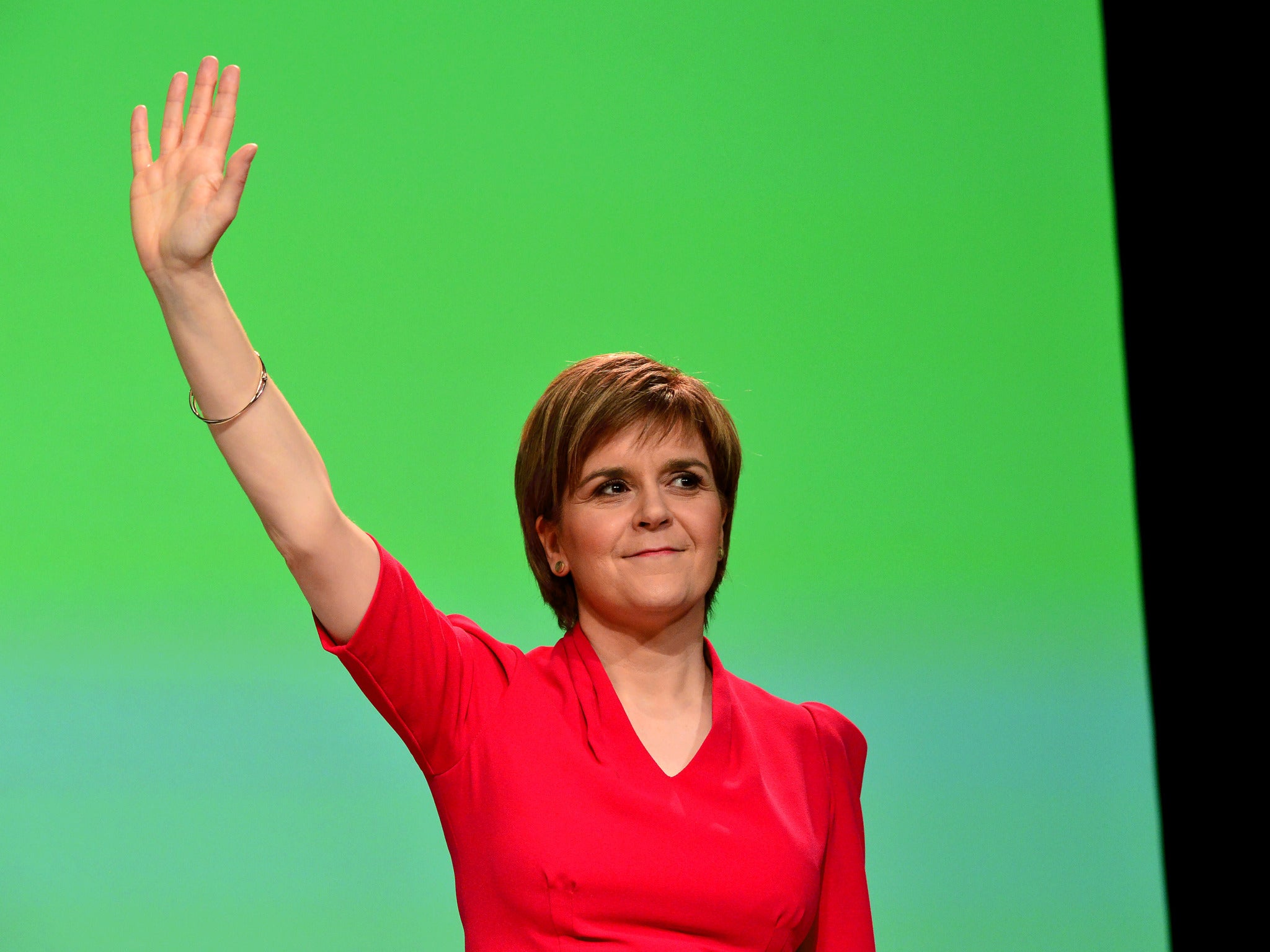Nicola Sturgeon no longer has a monopoly on authenticity
The SNP is acutely aware that the election of an ostentatiously left-wing Leader of the Opposition creates narrative problems

Barely seconds after Jeremy Corbyn was officially announced as the new Labour leader, Nicola Sturgeon’s obviously pre-written reaction to the result dropped into journalists’ email inboxes.
Basically, the Scottish First Minister set him up to fail, congratulating him but warning that if Labour could not “quickly demonstrate” a “credible chance” of winning the next UK election, then the SNP and independence would remain the only “alternative to continued Tory government”.
Of course this was disingenuous: if Corbyn does demonstrate that credibility, would independence suddenly fall off the radar? Not a chance. But it was also a typically smart piece of framing: Jeremy’s all right, the Nationalists are saying, but his “deeply, and very bitterly, divided party” will make his job impossible.
Even so, the SNP is acutely aware that the election of an ostentatiously left-wing Leader of the Opposition creates narrative problems, and control of the narrative has been central to the SNP’s success in recent years. Having capitalised on Labour’s drift to the right, Corbyn presents it with an obvious challenge.
No longer can Nationalists deride “red Tories” and use Tony Blair as a bogeyman, while the logic of “I didn’t leave Labour, Labour left me” (a line used by the SNP MP Mhairi Black in her maiden speech) is that thousands of formerly Labour supporters north of the border should now return to the fold.
The Scottish Labour Party, which isn’t exactly thrilled at the election of Corbyn, nevertheless hopes that at least some of those who deserted the party at last year’s independence referendum and this year’s general election will now think about supporting Labour again.
When a political party is down on its luck (as is undeniably the case with Scottish Labour) it tends to clutch at straws, but strategists believe the new Leader of the Opposition presents them with a tactical, if not a strategic, opportunity.
What now matters in politics – both Scottish and UK – is “authenticity”, or rather the perceived authenticity of certain parties and their leaders. In Scotland the SNP and Ms Sturgeon “own” authenticity, so for the first time they’ll have competition in the guise of the Member for Islington North.
That might also help Scottish Labour in narrative terms. Although Scottish politics now operates on several different levels – constitutional, ideological and rhetorical – the SNP has successfully co-opted a lot of left-wing shibboleths such as opposition to Trident, austerity and the Tories.
Scottish Labour leader Kezia Dugdale (who, like Corbyn, was elected by a decisive majority) understands that simply pitching to the left will not solve her party’s problems, although she has spoken about increasing taxes when the Scottish Parliament has the ability to do so, and has also hinted at a change of tack on Trident.
But if Corbyn has a tough task then Dugdale’s is even harder. She isn’t a natural Corbynista – indeed she once warned that his election could result in “carping on the sidelines” – and over the next few months she will have a difficult balancing act, attempting to exploit Corbyn’s “authenticity” on the one hand, while on the other not getting too close in case it all goes horribly wrong.
And of course it all going horribly wrong is not an unlikely prospect. Cast-iron discipline has been key to SNP success since 2007, but unity among Labour MPs is likely to be weak over the next few months, not exactly helpful ahead of elections to the Scottish Parliament next May.
It is also clear that Corbyn hasn’t really thought about the Scottish Question to any serious extent, demonstrating no obvious interest in constitutional politics, a significant weakness given the importance of Scotland, Europe and the House of Lords to contemporary debate. If he visits Edinburgh within the next few days (as seems likely), he’ll have to be much bolder if Scottish Labour is to stand any chance of benefiting from his extraordinary election success.
More to the point, without a significant revival in Labour’s fortunes north of the border, Corbyn’s chances of remaining leader and fighting the next UK general election will take a hit.
Join our commenting forum
Join thought-provoking conversations, follow other Independent readers and see their replies
Comments
Bookmark popover
Removed from bookmarks